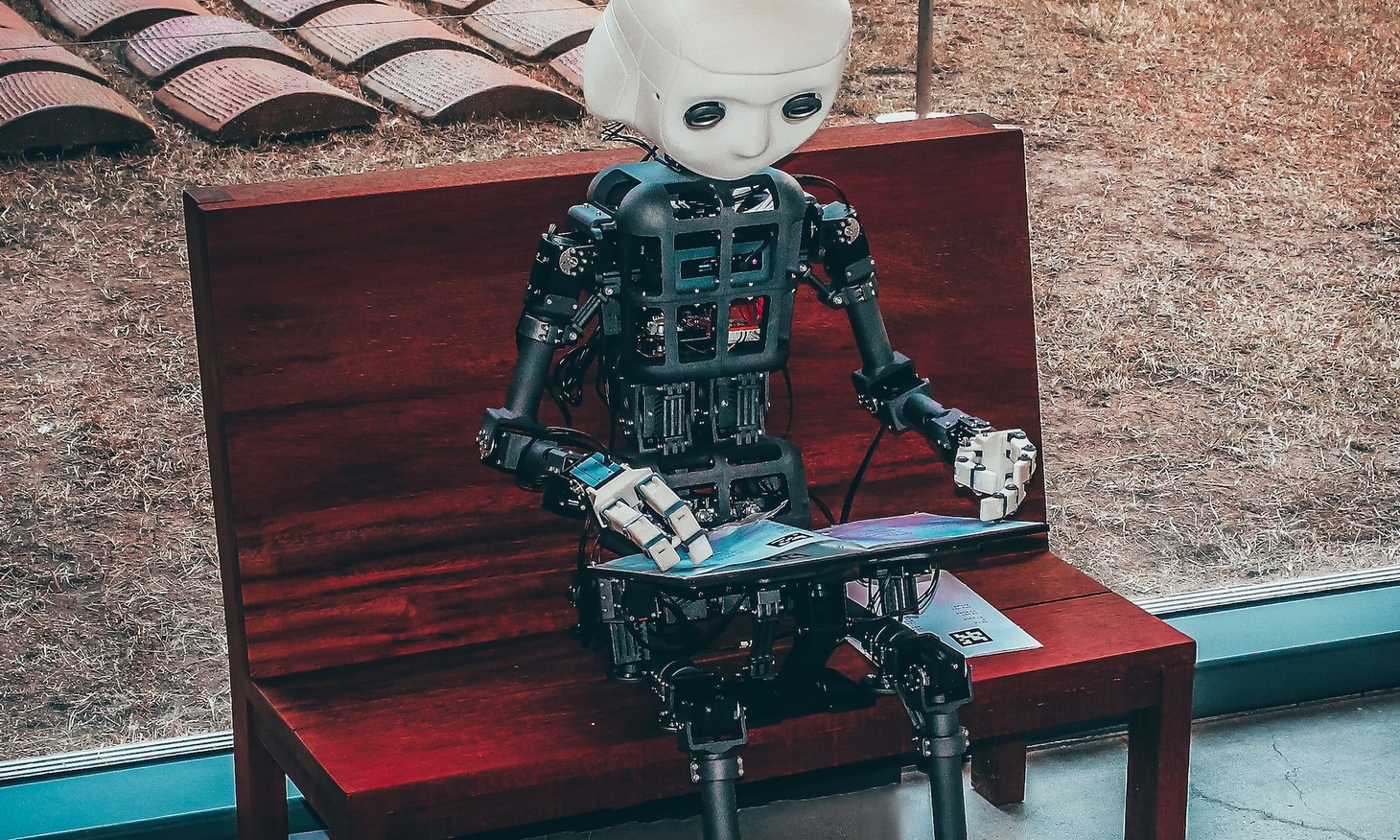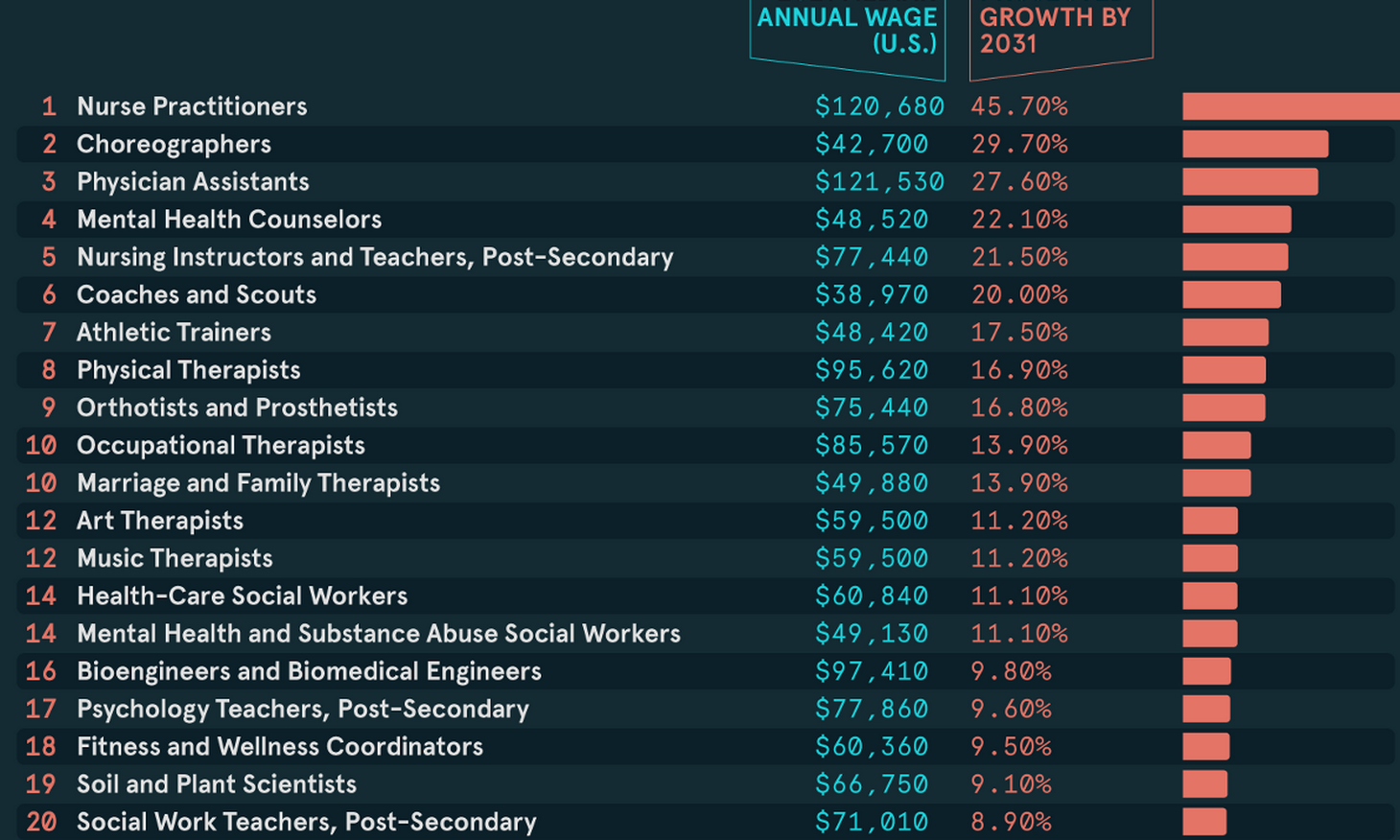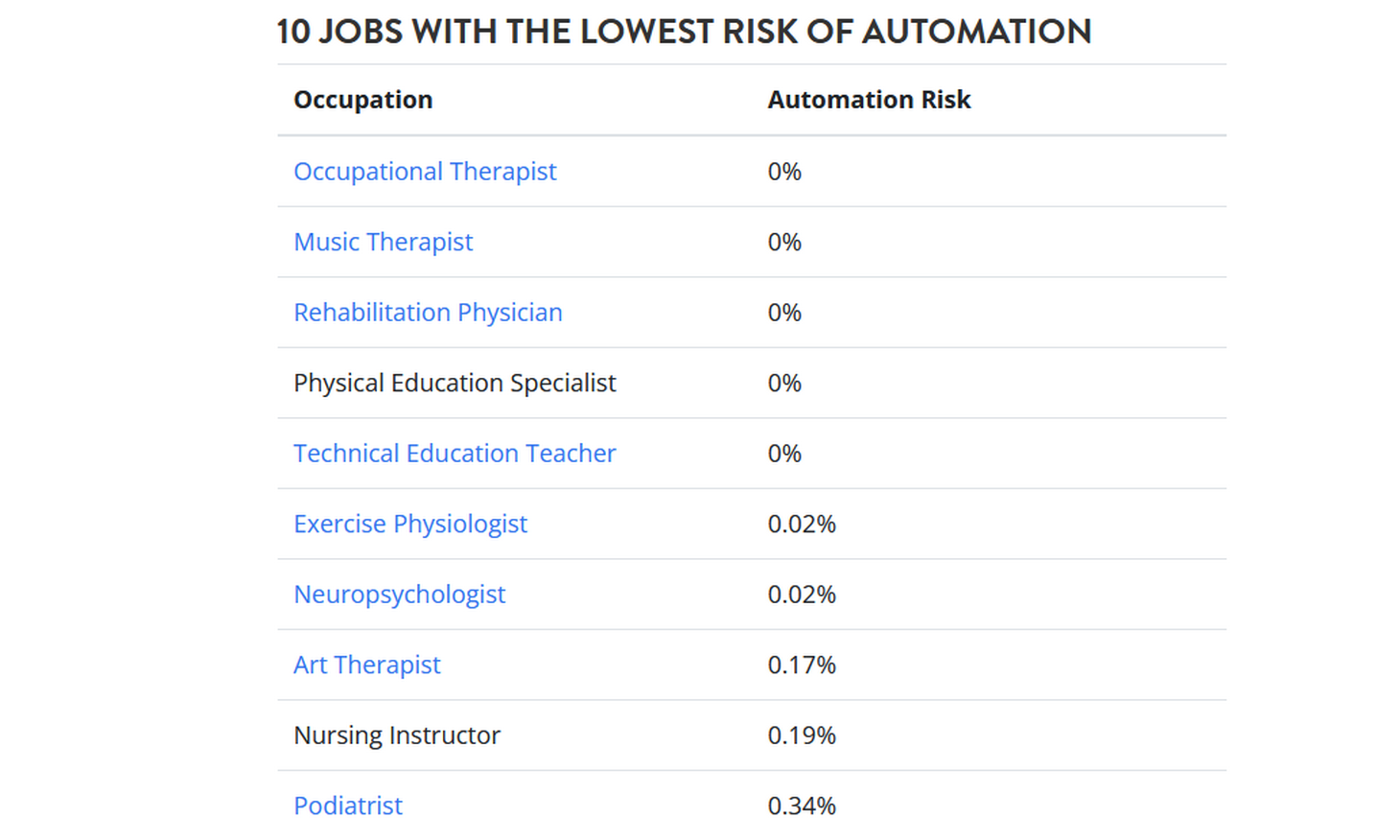AI Proof Jobs: Overview of Recent Data on the Topic
January 3, 2024
4 min. read

In our day and age, AI automation is considered quite common. AI chatbots and neural networks made outstanding breakthroughs within the last several years. And the trend proceeds to evolve.
While IT things get more complex, AI technologies confidently step into the world of occupations and job security. That means that AI is likely to replace some jobs fully or partially in the foreseeable future.
It’s only common sense to assume that some jobs are less at risk than others, like skilled tradespeople, nursing, or social workers. And it’s good to know in advance what all the recent research data have to say about AI proof jobs and about those that may be detached from the human touch very soon, unfortunately.
In this article, we’ll attempt to give a digestible overview of the variety of research and data out there for you to make data-driven conclusions about what AI proof jobs are if not the significant disruption in the job market.
AI Proof Jobs with Stats
All day every day, job seekers are determining their chances of landing a dream job. They build up a substantial resume with a master’s degree, bachelor’s degree, and formal education. Some couple it with an appealing profile on professional social platforms and take a trustworthy photo with an AI headshot generator, for example.
Now, it seems that one way to a stable job is preselecting between the positions that are prone to stay alive after AI help-out. Alongside, to opt out from the ones that are potentially doomed for the time being.
Sounds like a Halloween story, does it? To make our evaluation of AI proof and non-proof jobs, more exciting, and therefore less frightening, let’s go through a few up-to-date market research and open data on the topic with stats to back it up.
AI Proof Jobs’ Discussions Due to AI Tools and Generative AI
It’s not an overstatement to say that the question of job threat caused by AI tools, Generative AI, and robots has raised tons of controversy and has been trending. Among companies joining online discussions and research on the topic are the U.S. Career Institute, Western Governors University, Indeed, Emeritus, Zappier, HubSpot, etc.
Previously in 2013, Carl Benedikt Frey, Director of Future of Work, and Michael Osborne, Professor of Machine Learning, were one of the first to examine how susceptible jobs are towards computerization and estimated the probability for 702 occupations using a Gaussian process classifier.
For those of you who would like to check if your occupation is at risk of being taken by a robot, try out the authors’ tool at https://willrobotstakemyjob.com/. With fed data from the Bureau of Labor Statistics, polling data, and automation risk probability calculations, the resource endows each job with a ranking between 0 and 10.
The U.S. Career Institute Chart: 65 AI Proof Low-Risk Jobs Mostly Tapped to Emotional Intelligence
The U.S. Career Institute introduced a chart that clearly shows the trends of jobs with the lowest risk automation probability. The chart presents the 65 occupational positions based on skills, knowledge, and capabilities that are necessary to fulfill responsibilities. The roles are arranged orderly per their projected growth up to 2032 with the 2021-year median annual wage.
The top 20 AI-proof jobs below fall under 4 main categories: health care, education, AI proof creative jobs, and personal services.

https://www.uscareerinstitute.edu/blog/65-jobs-with-the-lowest-risk-of-automation-by-ai-and-robots
You can see the full list of the 65 occupations by the U.S. Career Institute at https://www.uscareerinstitute.edu/blog/65-jobs-with-the-lowest-risk-of-automation-by-ai-and-robots
AI-Proof Jobs Statistics by Zappia
The analysis carried out by job market professionals in Zappia, the modern career expert company, gives out profound thought-provoking data. According to Zappia, jobs are less susceptible to being swept over by artificial intelligence if they require qualities like emotional intelligence, problem solving, interpersonal skills, creativity, leadership, and the like. We can subdivide jobs with these characteristics into healthcare, education, and art industries.
Just a few examples with numbers for further consideration according to Zappia:
- Job automation is unlikely to appear where STEM (science, technology, engineering, and mathematics) proficiency and expertise are important.
- 25% of jobs in the U.S. are prone to be automated while some occupations will survive as AI future proof jobs.
- Routine manual occupations such as installation maintenance, transportation, and production are at higher risk of automation, while 67% of them are filled by the Baby Boomers generation.
- With an annual wage of $75,000, the following jobs will showcase automation risks of below 1%. These are Medical Scientists, Occupational Therapists, Sales Engineers, HR Managers, Training and Development Managers, and Speech-Language Pathologists, among other creative professionals.
See the list of top ten jobs with the lowest risk of automation in the table below.

https://www.zippia.com/advice/automation-and-job-loss-statistics/
To crown it all, the research shows that the United States houses 310,700 robots in industries and businesses. The trend will grow by at least 40,000 each year. For full data analysis, please visit https://www.zippia.com/advice/automation-and-job-loss-statistics/
HubSpot and Re-Skilling Due to AI Non-Proof Jobs
HubSpot teams, the U.S. developer and marketer of software products for inbound marketing, sales, and customer service, with reference to https://www.oxfordmartin.ox.ac.uk/publications/the-future-of-employment/, also analyze data and present a list of 10 AI non-proof jobs.
They include Telemarketing, Bookkeeping Clerks, Compensation and Benefits Managers, Receptionists, Couriers, Proofreaders, Computer Support Specialists, Market Research Analysts, and Advertising and Retail Salespeople.
Moreover, there is an optimistic list of 10 AI proof jobs with various, but still moderate automation likelihood percentages, depending on the further job specification:
- HR managers 14%
- Sales managers 30%
- Marketers 18%
- PR managers 20%
- Chief Executive 0%
- Event Planners 8%
- Writers 49%
- Software engineering 39%
- Editors 45%
- And Graphic Designers with an automation likelihood of 34% that know what AI-generated images are and how they can compete with human artworks.
Kipp Bondar, HubSpot’s Chief Marketing Officer, also says that with AI evolution, it’s worth looking into learning how to re-skill workforces globally. You can find the full article on the jobs that can be replaced by AI and the safe ones in here https://blog.hubspot.com/marketing/jobs-artificial-intelligence-will-replace
Closing Thoughts
When all is said and done and the market research analysts’ data is displayed, it leaves us with a handful of thoughts indeed. If we have to choose a new position soon, it seems like we need to do it wisely with AI proof jobs in mind and AI tools in hand for insights and complex decision-making. Dream big, think positive.